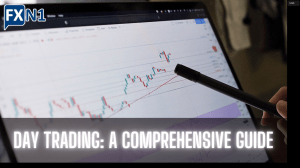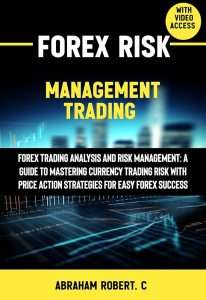A Comprehensive Guide to Online Forex Trading
Unlock the secrets of online forex trading! Learn proven strategies, master risk management, and navigate the global currency markets with confidence. Start your forex journey today!
Online forex trading presents a thrilling yet challenging opportunity for investors worldwide. The foreign exchange market‚ operating 24/5‚ offers unparalleled liquidity and access to global currencies. However‚ success requires a deep understanding of market dynamics‚ risk management techniques‚ and a well-defined trading strategy. This comprehensive guide will delve into the intricacies of online forex trading‚ equipping you with the knowledge and tools to navigate this dynamic landscape effectively.
Understanding the Forex Market
The foreign exchange market‚ or forex‚ is the largest and most liquid financial market globally. Unlike traditional stock exchanges‚ it operates electronically‚ connecting buyers and sellers from across the globe. This decentralized nature ensures continuous trading‚ allowing participants to engage in transactions at any time within the market’s operational hours. Understanding the fundamental concepts of currency pairs‚ exchange rates‚ and market forces is crucial for successful forex trading. Let’s explore these elements further.
Currency Pairs and Exchange Rates
Forex trading involves buying one currency while simultaneously selling another. These transactions are expressed as currency pairs‚ such as EUR/USD (Euro/US Dollar) or GBP/JPY (British Pound/Japanese Yen). The exchange rate reflects the value of one currency relative to another. Fluctuations in these rates create opportunities for profit‚ as traders aim to buy low and sell high.
Market Forces and Influences
Numerous factors influence forex exchange rates‚ including economic indicators‚ geopolitical events‚ and market sentiment. Central bank policies‚ interest rate changes‚ inflation rates‚ and government announcements can significantly impact currency valuations. Understanding these influences and their potential impact on market trends is vital for informed decision-making. Geopolitical instability‚ natural disasters‚ and global economic crises can also significantly affect currency exchange rates‚ creating both risks and opportunities for traders.
Developing a Successful Trading Strategy
A well-defined trading strategy is the cornerstone of successful online forex trading. This strategy should outline your trading goals‚ risk tolerance‚ preferred trading style‚ and the technical and fundamental analysis tools you will utilize. A comprehensive strategy is more than just a set of rules; it’s a roadmap to guide your trading decisions‚ helping you to navigate market volatility and achieve your financial objectives. Let’s examine key components.
Technical Analysis: Chart Patterns and Indicators
Technical analysis involves studying price charts and historical data to identify patterns and predict future price movements. Traders use various technical indicators‚ such as moving averages‚ relative strength index (RSI)‚ and MACD‚ to generate trading signals and confirm their analyses. Mastery of technical analysis requires practice and a deep understanding of chart patterns and indicator interpretations. A common mistake is over-reliance on indicators without considering fundamental factors.
Fundamental Analysis: Economic Factors and News
Fundamental analysis focuses on assessing economic factors and news events that could affect currency values. Traders analyze economic indicators like GDP growth‚ inflation rates‚ interest rates‚ and unemployment figures. Understanding how these factors influence supply and demand for currencies is key to making informed trading decisions. Significant geopolitical events‚ such as elections or international conflicts‚ can also impact currency values and warrant careful analysis.
Risk Management: Protecting Your Capital
Risk management is crucial in forex trading‚ as losses can be substantial without proper precautions. Implementing a robust risk management plan helps to protect your capital and prevent emotional decision-making. This often involves setting stop-loss orders to limit potential losses and employing position sizing strategies to control the amount of capital at risk on each trade. Diversification across different currency pairs can also contribute to a more resilient portfolio.
Choosing a Forex Broker
Selecting a reputable forex broker is vital for successful online trading. Not all brokers are created equal; some prioritize their profits over client needs‚ leading to conflicts of interest. Therefore‚ thorough research is essential before committing to a brokerage firm. Consider the following factors when making your choice.
- Regulation and Licensing: Ensure the broker is regulated by a reputable financial authority.
- Trading Platform: Choose a platform with user-friendly features‚ advanced charting tools‚ and reliable execution.
- Spreads and Commissions: Compare the broker’s fees to find the most competitive pricing structure.
- Customer Support: Evaluate the quality and responsiveness of their customer support services.
- Account Types and Minimum Deposits: Select an account type and minimum deposit that align with your trading goals and capital.
Essential Tools and Resources
Numerous tools and resources can enhance your online forex trading experience. Staying informed about market trends‚ economic events‚ and technical analysis techniques is crucial for success. The right tools can significantly improve your trading efficiency and decision-making process. Below are some crucial resources.
Economic Calendars and News Sources
Economic calendars provide schedules of important economic data releases‚ enabling traders to anticipate potential market movements. Reliable news sources offer up-to-the-minute information on global events impacting currency values. Staying informed about these factors is crucial for informed trading decisions.
Trading Platforms and Charting Software
Sophisticated trading platforms offer advanced charting tools‚ technical indicators‚ and automated trading capabilities. Choosing a platform that suits your trading style and technical expertise is vital for optimal performance. Many platforms offer demo accounts‚ allowing you to practice trading without risking real capital.
Educational Resources and Courses
Numerous online resources‚ courses‚ and books provide valuable insights into forex trading strategies‚ risk management‚ and market analysis. Continuous learning is crucial for improving your trading skills and adapting to evolving market conditions. Consider investing time in educational resources to enhance your knowledge and expertise.
Advanced Forex Trading Strategies
As you gain experience‚ you can explore more advanced strategies such as scalping‚ swing trading‚ and algorithmic trading. Each approach has unique characteristics‚ requiring different levels of skill‚ time commitment‚ and risk tolerance. It’s essential to thoroughly understand the nuances of each strategy before implementing it in your trading practice. Thorough backtesting and paper trading are crucial before venturing into live trading with advanced strategies.
Scalping: Short-Term Trades for Small Profits
Scalping involves executing numerous short-term trades to capitalize on small price fluctuations. This requires quick decision-making‚ rapid execution‚ and a deep understanding of market dynamics. While potentially profitable‚ scalping also carries high risk due to the frequency of trades and the volatility of the market.
Swing Trading: Capturing Medium-Term Price Swings
Swing trading focuses on identifying and capitalizing on medium-term price swings‚ holding positions for several days or weeks. This strategy requires a thorough understanding of both technical and fundamental analysis‚ as it balances short-term market movements with longer-term trends. Successful swing trading depends on identifying clear entry and exit points based on well-defined criteria.
Algorithmic Trading: Automated Trading Systems
Algorithmic trading employs computer programs to execute trades automatically based on pre-defined rules and algorithms. This approach demands advanced programming skills and a deep understanding of market mechanics. Algorithmic trading offers the potential for increased efficiency and objectivity but also requires robust risk management to prevent unforeseen losses.
The Psychology of Forex Trading
Successful forex trading is not solely about technical and fundamental analysis; it also involves mastering the psychological aspects of trading. Emotional discipline‚ risk management‚ and patience are crucial for making rational decisions and avoiding costly mistakes. Learning to manage your emotions is just as important as understanding market dynamics.
- Emotional Discipline: Avoid impulsive decisions driven by fear or greed.
- Risk Management: Stick to your predefined risk tolerance and stop-loss orders.
- Patience: Avoid chasing quick profits and allow your trading strategy to unfold.
- Discipline: Adhere to your trading plan consistently‚ regardless of market conditions.
- Self-Reflection: Regularly review your trades to identify areas for improvement.
Online forex trading offers exciting opportunities for financial growth‚ but it requires dedication‚ discipline‚ and continuous learning. By mastering the fundamentals‚ developing a robust trading strategy‚ and managing risk effectively‚ you can significantly improve your chances of success. Remember that consistent profitability in forex trading is not guaranteed‚ and losses are an inherent part of the process. Never invest more than you can afford to lose‚ and always prioritize responsible trading practices. Through diligent research‚ continuous education‚ and a disciplined approach‚ you can navigate the complexities of the forex market and work towards achieving your financial goals. The journey requires patience‚ persistence‚ and a commitment to continuous improvement. The rewards‚ however‚ can be substantial for those who dedicate themselves to mastering this dynamic and ever-evolving market. Success in online forex trading is a marathon‚ not a sprint; consistent effort and adaptation are key to long-term profitability.







